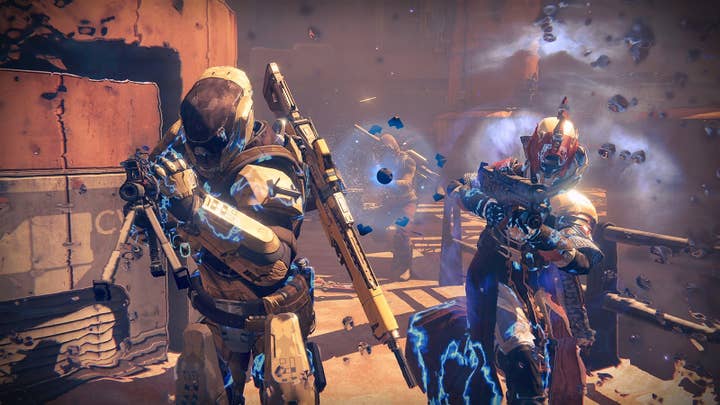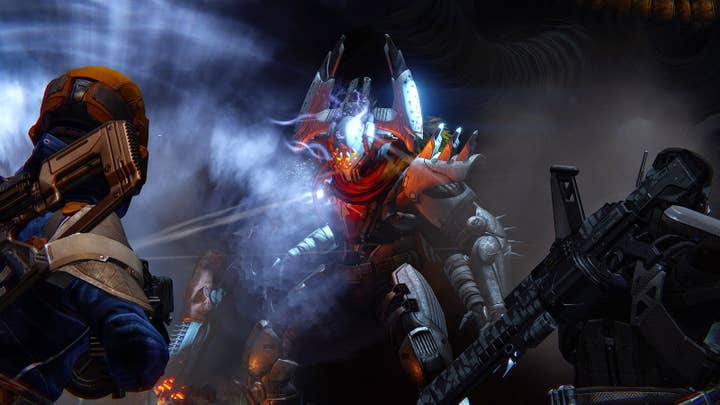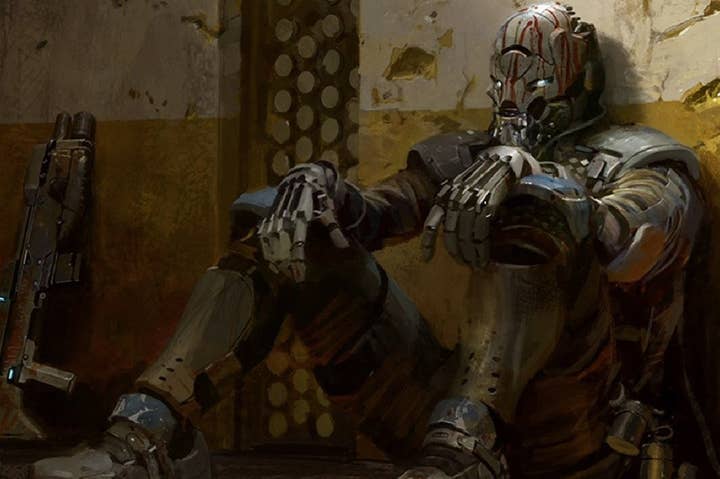Critical Consensus: Destiny is fun, beautiful and hollow
Bungie's ambitious project makes a good first impression, but the critics doubt its staying power
A little over a week ago, Bungie took the surprising step of warning the public away from early reviews of Destiny. In this case, the studio argued, a Day One opinion would effectively just be "kicking the tires" of a game that demanded a fully populated live environment to demonstrate the full extent of its appeal. Internal discussions had put the number of players necessary to create that experience in the thousands, and so Bungie advised its fans to wait, to ignore any journalists itching to pull the trigger.
A dramatic reading of Bungie's decision could frame it as a crossing of the critical rubicon; an acknowledgement that, in what promises to be a console generation defined by persistent online worlds, critics must now redefine their place in the way the industry functions if they are to remain relevant. A more paranoid reading might lead to the conclusion that Bungie feared a tepid reception, and so safeguarded against negative opinion during the all important launch period.
"A technical achievement that is beyond compare in the current industry"
The Guardian
While the second idea is more Reddit friendly, the first notion is undoubtedly more credible. But the fact is that both Bungie and Activision must have expected better review scores from a game of such huge and expensive ambition. A Metacritic average of 75 is anything but poor, of course, but these are companies used to dealing in 9s and 10s when they put hundreds of millions on the table. Now, Destiny has at least covered its costs already, but the outlets with the most sway - Polygon, Gamespot, Wired, Giant Bomb, etc. - have tended to go with 6s and 7s in the final reckoning.
The Guardian is at the top of that pile, awarding four stars for Bungie's expert synthesis of shooter, RPG and MMO. "Merging these three different genres into one cohesive experience is a technical achievement that is beyond compare in the current industry," Keith Stuart states in his review. "It is magnificently impressive."

The Guardian's sense of awe is not only down to Destiny's array of different activities and options - single-player and multi-player, directed and free-form, all without the sort of cracks and glitches that have plagued other notable releases - but in its presentation.
"And, oh wow, it is beautiful. The colony ships looming above the rusted cars and wrecked cosmodrome of Old Russia; the craggy mountains of the moon, seemingly piercing the starry infinity above them; the abandoned cities of Venus, lost amid weird alien flora. The presentation, the attention to detail, from fictitious technologies to corporate logos, is superlative."
Indeed, it's difficult to find a review that doesn't doff its cap to the technical bravado on display, but, as The Guardian notes as it regains its composure, "there is something missing at the heart of it all." For Giant Bomb, that something is the story, the lore and the world-building - areas where Destiny, for all its beauty, "comes up profoundly short."
"The story missions are the bulk of Destiny. But 'story' is maybe giving the missions a little too much credit"
Giant Bomb
"The story missions themselves are the bulk of Destiny. But 'story' is maybe giving the missions a little too much credit," Jeff Gerstmann's three-star review states. "There are somewhere around four cutscenes in the entire game, and most of the mid-mission updates are so full of space opera mumbo-jumbo and factions or other groups that you haven't heard of before, giving you no context for any of it. It's almost like they expect to flesh out the world in a series of books someday or something.
"Regardless of future plans, I found it hard to care about any of the lore in Destiny because there was very little of it and it all felt loosely connected, at best. Did I really accomplish anything when I finished the last story mission? It sure doesn't feel that way to me. If you were a fan of Bungie's narrative work in the past, you'll probably be disappointed with this aspect of Destiny."
This is just one of many reviews that mention Destiny's strengths almost in passing, before describing its flaws in great detail. To a large extent this is understandable: as Giant Bomb points out, after more than 20 years of making action games there are certain things one can reasonably expect from a Bungie release, with good shooting mechanics and lashings of polish chief among them. Wired's Chris Kohler makes a similar point, but he is careful not to undersell just how rewarding those qualities can be, particularly when combined with Destiny's loot and levelling systems.
"This is about as much fun as shooting a fake gun gets," Kohler states. "Shooting is the game. Oh, there are missions that seem at first to require a more nuanced take on the art of interplanetary warfare, but these are (in my experience) of two types: 'Run to a place and press the square button once' and 'Run to a place and don't press anything'.

"Still, the role-playing aspects grafted on to the base gameplay give it an addictive appeal that the shooting itself might not. Shoot, kill, take loot, upgrade your gear, level up, repeat. Bungie has nailed that perfect Skinner box where the rewards come just enough to keep you on the hook for the next one."
However, that point is certainly open to debate. While pretty much everyone regards Destiny as a ravishing example of what can be achieved with expert art direction and new generation console hardware, some take considerable issue with the ramifications of Bungie's lack of attention to its world, its story and, ultimately, the player's resulting sense of agency. Wired admires Bungie's carefully constructed skinner box, but Polygon holds that the artifice shouldn't be quite so obvious.
"Bungie has nailed that perfect Skinner box where the rewards come just enough to keep you on the hook for the next one"
Wired
"There's an art to disguising the very basic systems at play in most games, to making them seem to have more at stake than waiting for another door to open or waves of enemies to stop coming," Arthur Gies says as one half of a review two-hander. "I'm not sure where that art went here, but it's absent regardless. Destiny feels like a series of waiting rooms, where enemies to shoot are the magazines you're expected to read, except you had goddamned well finish that issue of Us Weekly before you're allowed to move on.
"This didn't have to be a problem. Destiny's basic mechanics and controls - movement, jumping, shooting, and melee combat - are sound. In fact, Destiny might have the most fun melee attack I've played in a shooter in farther-back-than-recent memory. The act of firing and aiming while navigating environments is fine, and it could be the basis for a great shooter. It could be, that is, if not for the underwhelming encounters that define Destiny from start to finish."
Whether any of these critics played Destiny for long enough to meet Bungie's criteria is unclear. Perhaps we'll never know for sure, and perhaps in the contemporary world of AAA console games it no longer even matters. After all, $500 million can't be wrong, whichever direction it's heading.

